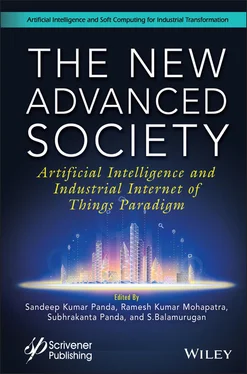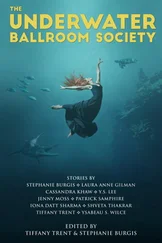370 366
371 367
372 368
373 369
374 370
375 371
376 372
377 373
378 374
379 375
380 376
381 377
382 378
383 379
384 380
385 381
386 382
387 383
388 384
389 385
390 386
391 387
392 388
393 389
394 390
395 391
396 392
397 393
398 395
399 396
400 397
401 398
402 399
403 400
404 401
405 402
406 403
407 404
408 405
409 406
410 407
411 408
412 409
413 410
414 411
415 412
416 413
417 414
418 415
419 416
420 417
421 418
422 419
423 420
424 421
425 422
426 423
427 424
428 425
429 426
430 427
431 428
432 429
433 430
434 431
435 432
436 433
437 434
438 435
439 436
440 437
441 438
442 439
443 440
444 441
445 442
446 443
447 444
448 445
449 446
450 447
451 448
452 449
453 450
454 451
455 452
456 453
457 454
458 455
459 456
460 457
461 458
462 459
463 460
464 461
465 462
466 463
467 464
468 465
469 466
470 467
471 468
472 469
473 470
474 471
475 472
476 473
477 474
478 475
479 476
480 477
481 478
482 479
483 480
484 481
485 482
486 483
487 485
Scrivener Publishing
100 Cummings Center, Suite 541J
Beverly, MA 01915-6106
Artificial Intelligence and Soft Computing for Industrial Transformation
Series Editor: Dr. S. Balamurugan (sbnbala@gmail.com)
Scope: Artificial Intelligence and Soft Computing Techniques play an impeccable role in industrial transformation. The topics to be covered in this book series include Artificial Intelligence, Machine Learning, Deep Learning, Neural Networks, Fuzzy Logic, Genetic Algorithms, Particle Swarm Optimization, Evolutionary Algorithms, Nature Inspired Algorithms, Simulated Annealing, Metaheuristics, Cuckoo Search, Firefly Optimization, Bio-inspired Algorithms, Ant Colony Optimization, Heuristic Search Techniques, Reinforcement Learning, Inductive Learning, Statistical Learning, Supervised and Unsupervised Learning, Association Learning and Clustering, Reasoning, Support Vector Machine, Differential Evolution Algorithms, Expert Systems, Neuro Fuzzy Hybrid Systems, Genetic Neuro Hybrid Systems, Genetic Fuzzy Hybrid Systems and other Hybridized Soft Computing Techniques and their applications for Industrial Transformation. The book series is aimed to provide comprehensive handbooks and reference books for the benefit of scientists, research scholars, students and industry professional working towards next generation industrial transformation.
Publishers at Scrivener
Martin Scrivener ( martin@scrivenerpublishing.com)
Phillip Carmical ( pcarmical@scrivenerpublishing.com)
The New Advanced Society
Artificial Intelligence and Industrial Internet of Things Paradigm
Edited by
Sandeep Kumar Panda
IcfaiTech (Faculty of Science and Technology) ICFAI Foundation for Higher Education, Hyderabad, Telangana, India
Ramesh Kumar Mohapatra
Department of Computer Science and Engineering, National Institute of Technology, Rourkela, Odisha, India
Subhrakanta Panda
Department of Computer Science and Information Systems, Birla Institute of Technology, Pilani, Hyderabad Campus, Telangana, India
and
S. Balamurugan
Director-Research and Development, Intelligent Research Consultancy Services (iRCS), Coimbatore, Tamilnadu, India

This edition first published 2022 by John Wiley & Sons, Inc., 111 River Street, Hoboken, NJ 07030, USA and Scrivener Publishing LLC, 100 Cummings Center, Suite 541J, Beverly, MA 01915, USA
© 2022 Scrivener Publishing LLC
For more information about Scrivener publications please visit www.scrivenerpublishing.com.
All rights reserved. No part of this publication may be reproduced, stored in a retrieval system, or transmitted, in any form or by any means, electronic, mechanical, photocopying, recording, or otherwise, except as permitted by law. Advice on how to obtain permission to reuse material from this title is available at http://www.wiley.com/go/permissions.
Wiley Global Headquarters
111 River Street, Hoboken, NJ 07030, USA
For details of our global editorial offices, customer services, and more information about Wiley products visit us at www.wiley.com.
Limit of Liability/Disclaimer of Warranty
While the publisher and authors have used their best efforts in preparing this work, they make no representations or warranties with respect to the accuracy or completeness of the contents of this work and specifically disclaim all warranties, including without limitation any implied warranties of merchantability or fitness for a particular purpose. No warranty may be created or extended by sales representatives, written sales materials, or promotional statements for this work. The fact that an organization, website, or product is referred to in this work as a citation and/or potential source of further information does not mean that the publisher and authors endorse the information or services the organization, website, or product may provide or recommendations it may make. This work is sold with the understanding that the publisher is not engaged in rendering professional services. The advice and strategies contained herein may not be suitable for your situation. You should consult with a specialist where appropriate. Neither the publisher nor authors shall be liable for any loss of profit or any other commercial damages, including but not limited to special, incidental, consequential, or other damages. Further, readers should be aware that websites listed in this work may have changed or disappeared between when this work was written and when it is read.
Library of Congress Cataloging-in-Publication Data
ISBN 978-1-119-82447-3
Cover image: Pixabay.Com
Cover design by Russell Richardson
Set in size of 11pt and Minion Pro by Manila Typesetting Company, Makati, Philippines
Printed in the USA
10 9 8 7 6 5 4 3 2 1
Dedicated to my sisters Susmita, Sujata, Bhaina Sukanta, my nephew Surya Datta, my wife Itishree (Leena), my son Jay Jagdish (Omm), my late father Jaya Gopal Panda and late mother Pranati Panda.
Sandeep Kumar Panda
The primary goal of an advanced society, also known as Society 5.0, is to create a human-centric society in which economic progress and social problems are balanced by implementing a system that integrates cyberspace and physical space. That is, a society which aims to create a better social and economic model by adapting the technological innovations of Industry 4.0. Society 5.0 is a huge societal transformation plan that visualizes a “super-smart society.” It is a follow-up to Industry 4.0, where “information” was the predominant factor but cross-sectional knowledge sharing was not adequate, making cooperation among different sectors difficult. Also, finding the information needed from among information overflow is a tedious task, thereby limiting the scope of actions due to various factors like lack of skills, different abilities of those doing the work, etc. In Industry 4.0, data is accessed from the cloud and operations like searching, retrieving and analyzing data happen over the internet, with the burden of analysis being carried by humans. Whereas, in Society 5.0, people, systems and things will all be connected and the vast amounts of data from sensors will be collected in real time, accumulated and analyzed using artificial intelligence (AI), and the resultant analyses fed back to humans in different forms. Society 5.0 balances economic advancements with the resolution of social problems by incorporating the latest technological advancements like big data, AI, the internet of things (IoT) and robotics in all industrial and societal activities. Of course, Industry 4.0 will be a major component of Society 5.0, but is not the only component—it is also about citizens, organizations, stakeholders, academia and so on. In short, using the technological advancements to provide solutions to better the lives of humans is what an advanced society all about. Some salient features of an advanced society are problem-solving and value-adding, bringing out divergent abilities, decentralization, resilience, sustainability and environmental harmony.
Читать дальше













